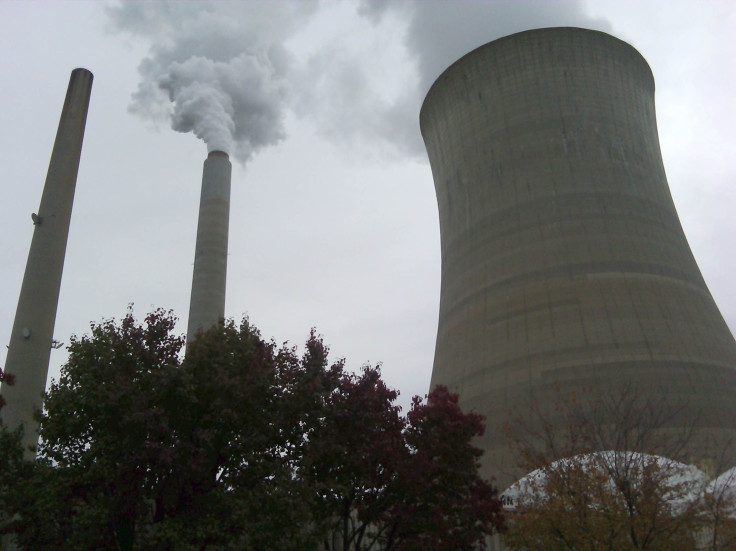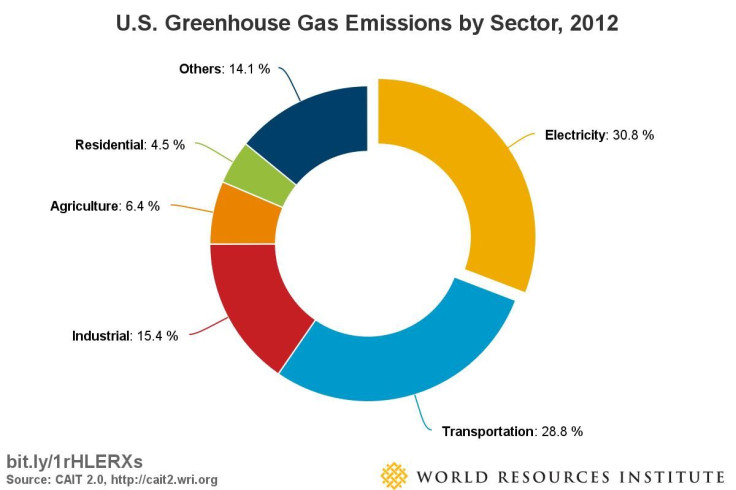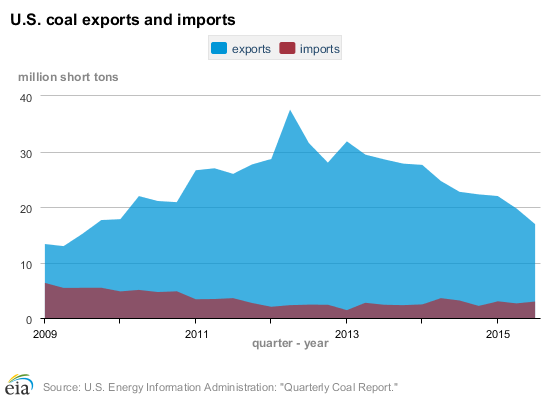Climate Change 2016: Opponents Of Obama’s Clean Power Plan 'Undeterred’ By Court Ruling Upholding Power Plant Policy

Coal states, mining companies and utilities vowed Friday to keep fighting the Obama administration's landmark power plant rules after a federal appeals court denied a bid to suspend the policy. A flurry of continued legal attacks this year could eventually bring the Clean Power Plan before the U.S. Supreme Court, legal experts say.
"We're moving forward undeterred," said Ross Eisenberg, vice president of energy and resources policy for the National Association of Manufacturers.
The industry group is among the dozens of states and trade organizations suing the Environmental Protection Agency to dismantle the rules. The opponents had hoped to suspend the power plant policy while the courts considered the lawsuits, but the U.S. Court of Appeals in Washington Thursday denied their motion.
"We're disappointed," Eisenberg said. "But the legal challenges are far from over."
President Barack Obama finalized the Clean Power Plan in October as a central piece of his climate change agenda. The rule aims to cut U.S. carbon dioxide emissions to 32 percent below 2005 levels by 2030 by requiring states and utilities to use less coal and install cleaner energy sources, including solar and wind power and energy efficiency.

The EPA and its supporters say the Clean Power Plan is one of America's most important and ambitious efforts to confront global warming. At the United Nations climate conference in Paris in December, Obama and other leaders praised the plan as a sign of U.S. leadership on the issue. But the Clean Power Plan's critics have argued it will force states and power companies to adopt expensive changes, which in turn will raise costs for factory owners, businesses and the average ratepayer.
"This ill-advised example of federal overreach will kill jobs, result in higher electric bills and create a significantly less reliable electric grid for all consumers," Texas Attorney General Ken Paxton said in a statement Thursday. Texas, along with West Virginia, is leading a coalition of 25 states in the lawsuit to block the power rules.
The Washington appeals court this week agreed to expedite hearings for the state and industry group lawsuits. The court said final legal briefs are due in late April, while oral arguments will begin June 2. States have until September to send the EPA their draft plans for meeting the rule. Final implementation plans are due in 2018; the EPA plans to start enforcing emissions reductions in 2022.
Patrick Morrisey, the West Virginia attorney general, said Thursday his office would consider asking the Supreme Court to step in and halt the rule while the lawsuits wend their way through the federal appeals court. The plan, he said, will cause "irreversible harm" to West Virginia's economy and worsen the suffering its coal industry is already experiencing.

But legal experts said it was highly unlikely the Supreme Court would involve itself prior to the lower court's final decision. "It would be extraordinarily unusual for the Supreme Court to step into a case that's actively being considered," said Brendan Collins, a partner in Ballard Spahr LLP's environment and natural resources group.
Still, he said expected the states and industry groups would try anyway. He noted that a coalition of the nation's largest coal companies and 14 coal-producing states had previously sued to block a draft version of the power regulations. The U.S. District Court in Washington dismissed the lawsuit, saying it was unprecedented for a court to review a rule that wasn't yet finalized.
Collins said the states' appeal to Supreme Court judges and other potential legal efforts "will all be gestures, and unlikely to be anything more than a sideshow to what's going on in the D.C. Circuit," the appeals court.
However, he said the case could eventually reach the Supreme Court if the lower courts rule to uphold the Clean Power Plan this summer and opponents appealed again.
As the case draws out in Washington, states meanwhile are already working to draft their compliance plans for the EPA. Even states involved in the lawsuit – including West Virginia, Michigan and Missouri – are advancing strategies to meet the climate change rule, said Rebecca Gasper, a research analyst with the World Resources Institute, an environmental group in Washington that supports the Clean Power Plan.
Gasper said this week's court decision to deny the pause on the rule means many states could accelerate their efforts to finish plans by the September deadline. "It paves the way for states to continue to start moving on this," she said. "Any states that were waiting to see what would happen can now really move forward."
© Copyright IBTimes 2024. All rights reserved.





















